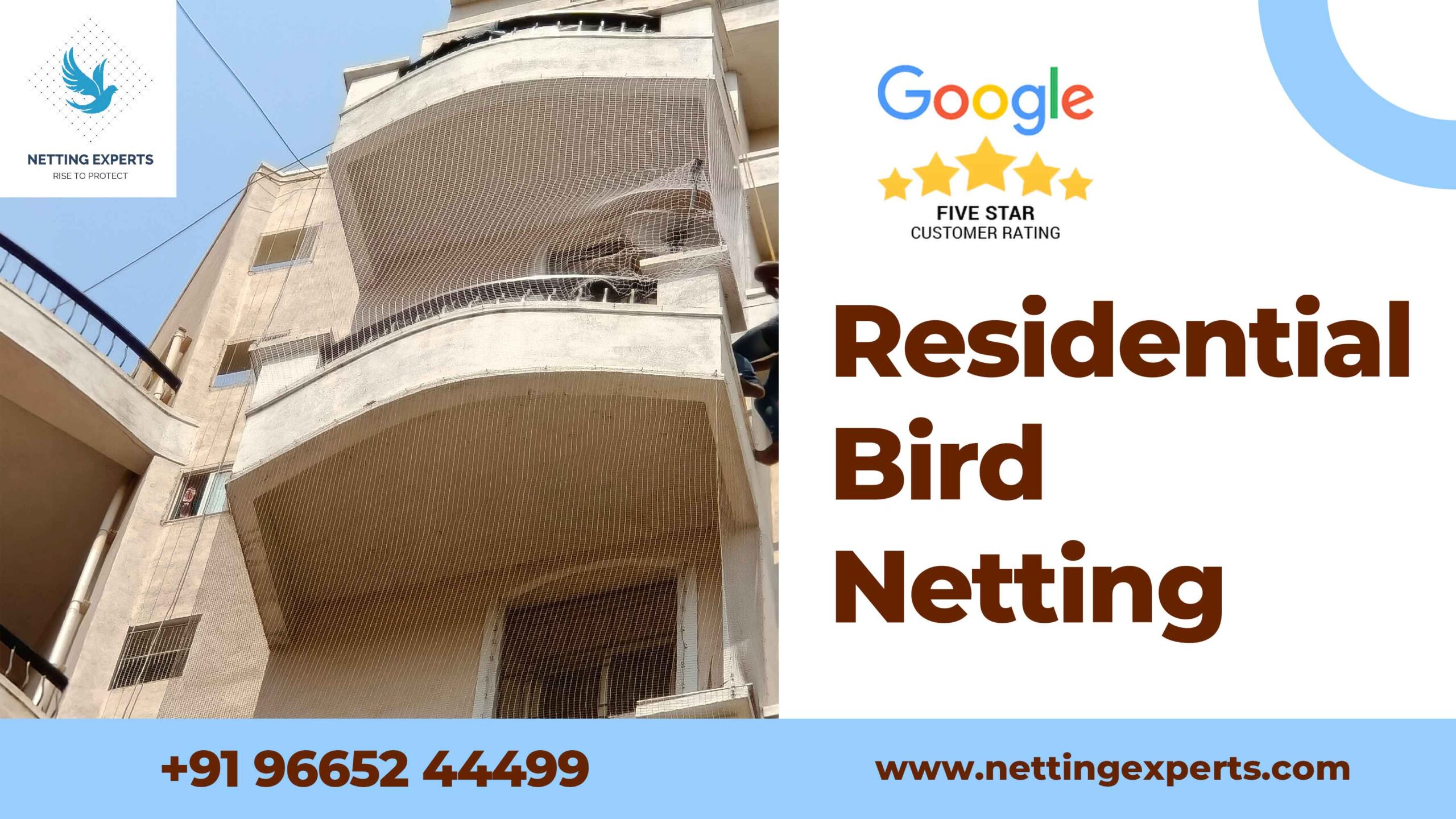
Birds are beautiful creatures, but they can become a nuisance when they invade your home or property. From perching on ledges and roofs to nesting in gutters, these feathered visitors can cause damage, create messes, and spread diseases. Residential bird netting offers an effective and humane solution to keep birds away from your home and maintain its beauty while ensuring the well-being of these winged creatures. In this webpage, we’ll explore the benefits of residential bird netting, its various applications, and how it can help you maintain a bird-free environment.
Benefits of Residential Bird Netting:
- Bird Deterrence: The primary benefit of bird netting is its effectiveness in keeping birds away from specific areas. The netting acts as a barrier that prevents birds from accessing spaces like balconies, rooftops, awnings, and eaves where they might roost or build nests.
- Property Preservation: Birds, such as pigeons and seagulls, can cause significant damage to buildings and property. Their droppings can corrode surfaces, stain buildings, and clog gutters, leading to costly repairs and maintenance. Bird netting helps protect your property from such damages.
- Health and Hygiene: Bird droppings can carry harmful pathogens and bacteria that pose health risks to humans. By implementing bird netting, you reduce the likelihood of exposure to these health hazards.
- Aesthetic Appeal: Bird netting is designed to be discreet and visually unobtrusive. It does not compromise the appearance of your home and can be customized to blend seamlessly with the surroundings.
Applications of Residential Bird Netting:
- Balcony and Patio Netting: Bird netting can be installed around balconies and patios to prevent birds from perching, nesting, or leaving droppings in these areas. This allows you to enjoy outdoor spaces without the presence of bothersome birds.
- Roof and Awning Netting: Installing bird netting on roofs and awnings keeps birds from nesting or seeking shelter in these locations. It prevents damage to roofing materials and keeps gutters and drains free from debris caused by nesting activities.
- Garden and Fruit Tree Netting: Bird netting can protect your garden plants, flowers, and fruit trees from bird damage. It acts as a physical barrier that prevents birds from accessing the produce, ensuring a bountiful harvest.
- Air Vent and Chimney Netting: Birds often seek out air vents and chimneys as potential nesting sites. Installing bird netting over these openings prevents blockages and ensures proper ventilation while keeping birds out.
Choosing and Installing Residential Bird Netting:
- Netting Material: Bird netting is usually made of durable and UV-stabilized polyethylene or nylon. Choose a high-quality material that can withstand various weather conditions.
- Mesh Size: Select the appropriate mesh size to prevent birds from getting entangled while still keeping them out. Smaller mesh sizes are ideal for smaller bird species.
- Professional Installation: While some homeowners may attempt DIY installations, it’s recommended to hire professional bird netting services. Experts ensure proper installation and offer tailored solutions for your specific needs.
Conclusion: Residential bird netting provides an eco-friendly, humane, and effective solution to keep your home bird-free and maintain its aesthetic appeal. By deterring birds from roosting, nesting, and causing damage, bird netting helps protect your property and ensures a healthier and cleaner living environment for you and your family. Whether it’s balconies, roofs, gardens, or vents, bird netting offers a comprehensive and versatile solution for all your bird control needs.

